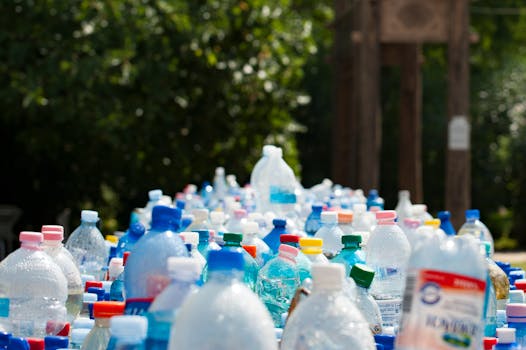Ways to Reduce Plastic Waste While Traveling
Traveling is an enriching experience that allows us to explore new cultures, cuisines, and landscapes. However, it often comes with a significant environmental cost, particularly in the form of plastic waste. According to the United Nations, approximately 300 million tons of plastic are produced each year, with a substantial portion ending up in our oceans and landfills. As travelers, we can take proactive steps to minimize our plastic footprint. This article explores effective strategies for reducing plastic waste while traveling, focusing on the use of reusable bottles and avoiding single-use plastics.
The Impact of Single-Use Plastics
Single-use plastics, such as water bottles, straws, and cutlery, are designed to be used once and discarded. They contribute to the global plastic crisis, polluting our environment and harming wildlife. A study by the World Economic Forum predicts that by 2025, there will be more plastic than fish in the oceans by weight if current trends continue. This alarming statistic underscores the urgency of adopting sustainable practices while traveling.
Embrace Reusable Water Bottles
One of the simplest yet most effective ways to reduce plastic waste is by using a reusable water bottle. Here are some compelling reasons to make the switch:
- Environmental Benefits: By using a reusable bottle, you can save an average of 167 plastic water bottles per person each year.
- Cost-Effective: Many travel destinations offer free or low-cost water refill stations, allowing you to save money while staying hydrated.
- Health Considerations: Reusable bottles made from stainless steel or glass are often safer than plastic, which can leach harmful chemicals.
For example, the city of San Francisco has implemented a program that encourages the use of refillable water bottles by installing over 100 water refill stations throughout the city. This initiative has significantly reduced the consumption of single-use plastic bottles.
Choose Eco-Friendly Alternatives
In addition to reusable water bottles, travelers can opt for eco-friendly alternatives to common single-use plastic items:
- Reusable Straws: Carry a stainless steel or silicone straw to avoid plastic straws at restaurants and cafes.
- Cloth Bags: Bring your own reusable shopping bags for souvenirs or groceries, reducing the need for plastic bags.
- Travel Utensils: Invest in a portable cutlery set made from bamboo or stainless steel to avoid disposable cutlery.
In 2019, the European Union implemented a ban on single-use plastic items, including straws and cutlery, which has encouraged travelers to adopt more sustainable practices.
Plan Ahead and Research
Before embarking on your journey, take the time to research your destination’s policies on plastic waste and recycling. Many cities and countries are becoming increasingly aware of the plastic crisis and are implementing measures to combat it. Here are some tips for planning:
- Check for Refill Stations: Use apps like “Tap” or “Refill” to locate water refill stations in your travel area.
- Support Local Businesses: Choose restaurants and shops that prioritize sustainability and offer eco-friendly products.
- Participate in Clean-Up Events: Engage with local organizations that focus on reducing plastic waste and participate in beach or park clean-up events.
For instance, in Bali, Indonesia, local initiatives have emerged to reduce plastic waste, including community clean-up days and educational programs aimed at tourists.
Educate and Advocate
As travelers, we have the power to influence others. Share your experiences and knowledge about reducing plastic waste with fellow travelers and locals. Here are some ways to advocate for change:
- Social Media: Use platforms like Instagram and Twitter to promote sustainable travel practices.
- Engage with Local Communities: Discuss the importance of reducing plastic waste with local residents and businesses.
- Leave Feedback: When dining or shopping, provide feedback to businesses that use excessive plastic packaging.
Conclusion
Reducing plastic waste while traveling is not only possible but essential for the health of our planet. By embracing reusable water bottles, choosing eco-friendly alternatives, planning ahead, and advocating for sustainable practices, we can significantly lessen our environmental impact. As travelers, we have a unique opportunity to lead by example and inspire others to join the movement towards a more sustainable future. Remember, every small action counts, and together, we can make a difference in the fight against plastic pollution.
